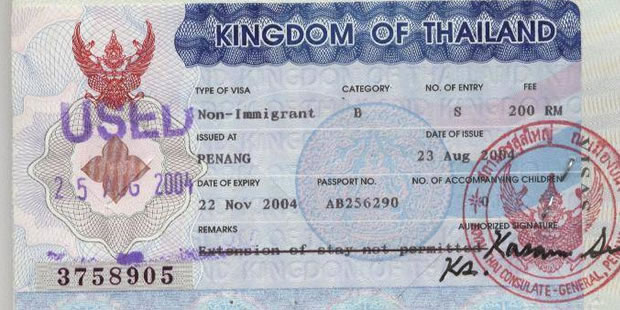Business Visa in Thailand. Because of its thriving business environment and advantageous position in Southeast Asia, Thailand is a popular destination for business owners and investors from all over the world. The Thai government provides a number of different sorts of business visas in order to make business operations more accessible. This page is intended to serve as a thorough guide to understanding business visas in Thailand. It covers eligibility requirements, application procedures, and important considerations for business owners.
I. The Types of Business Visas Available in Thailand
A. Business Visa, often known as the Non-Federal B Visa:
In Thailand, the Non-Immigrant B Visa is the most common type of visa for international businesspeople who are doing operations related to their businesses.
For persons who are looking for jobs, attending business meetings, or investigating investment prospects, it is an appropriate option.
B. For the SMART Visa:
Extended benefits are included in the SMART Visa, which was introduced with the intention of attracting high-skilled professionals, investors, and startups.
There are four categories that fall under the SMART Visa program: “T” (Talent), “I” (Investor), “E” (Executive), and “S” (Startup.”
II. Eligibility Requirements
A. Visa for Non-Immigrant Group B:
Applicants must either be officially employed by a Thai company that is registered in Thailand or have been invited by a Thai government agency.
A qualifying activity must to be being carried out by the company that is located in Thailand.
B. For the SMART Visa:
SMART Visa eligibility requirements differ depending on the category.
To qualify for the “S” category, which stands for “Startup,” entrepreneurs need to fulfill certain conditions, such as those pertaining to investments and business plans.
III. Application Procedure
A. Visa for Non-Immigrant Group B:
Get a letter of invitation from the company that is hiring you or from the Thai government agency that is relevant to the position.
Applicants are needed to submit all of the necessary documents, including the invitation letter, to the Thai embassy or consulate located in their home country.
B. For the SMART Visa:
Applicants for the SMART Visa must submit their applications using the internet portal.
During the application procedure, you will be needed to submit the necessary documents and your application will be evaluated by the appropriate authorities.
IV. Important Things to Keep in Mind for Those Who Have Business Visas
A. Permit to Work:
Non-Immigrant B group Work permits are required to be obtained by visa holders who intend to engage in employment activities in Thailand.
It is necessary to obtain approval from the Thai Department of Employment in order to obtain a work visa, which is a distinct process.
B. Extensions and Renewals of Contracts:
To extend their visas within Thailand, holders of a Non-Immigrant B Visa as well as a SMART Visa are permitted to do so.
Typically, extensions are granted for a period of one year, and they are contingent upon the fulfillment of certain criteria.
C. Keeping the Normal Operations of the Business:
Holders of business visas are required to participate actively in the activities that are permitted for business.
In the event that this is not the case, the visa may be revoked or extensions may not be granted.
V. The Advantages of Obtaining a SMART Visa
A. Staying for Extended Periods:
Holders of SMART Visas are granted initial stay terms that are longer than those granted to holders of Non-Immigrant B Visas.
Because of the extended stay, business planning and implementation can be extended for a longer period of time.
B. Privileges for the Family:
A SMART Those who possess a visa are permitted to bring their spouses, children, and crucial support staff members to Thailand.
For family members who are traveling with the primary visa holder, the visa provides a larger degree of flexibility overall.
C. Services with a Fast-Track Mode:
Those who have a SMART Visa are eligible for accelerated proceedings for immigration and work permits.
The benefits of this are especially useful for executives and professionals with a high level of expertise.
VI. Obstacles and Things to Take Into Account
A. Ensuring compliance with regulations:
Those who possess a business visa are required to comply with the immigration and labor requirements of Thailand.
Keeping abreast of any changes that may occur in the rules and regulations is quite necessary.
VII. Concluding Remarks
When it comes to establishing and sustaining a successful company presence in Thailand, one of the most important aspects is navigating the business visa process. It is imperative that entrepreneurs thoroughly evaluate their eligibility, select the visa type that best suits their needs, and remain knowledgeable about the legislation and procedures pertaining to visas. Entrepreneurs can take advantage of these visa choices to open opportunities, stimulate business growth, and contribute to Thailand’s vibrant and diverse business scene. These visa options include the Non-Immigrant B Visa as well as the innovative SMART Visa. Engaging with professional immigration services and legal consultants can further shorten the process of applying for a visa and ensure compliance with the restrictions that are in place in Thailand.
